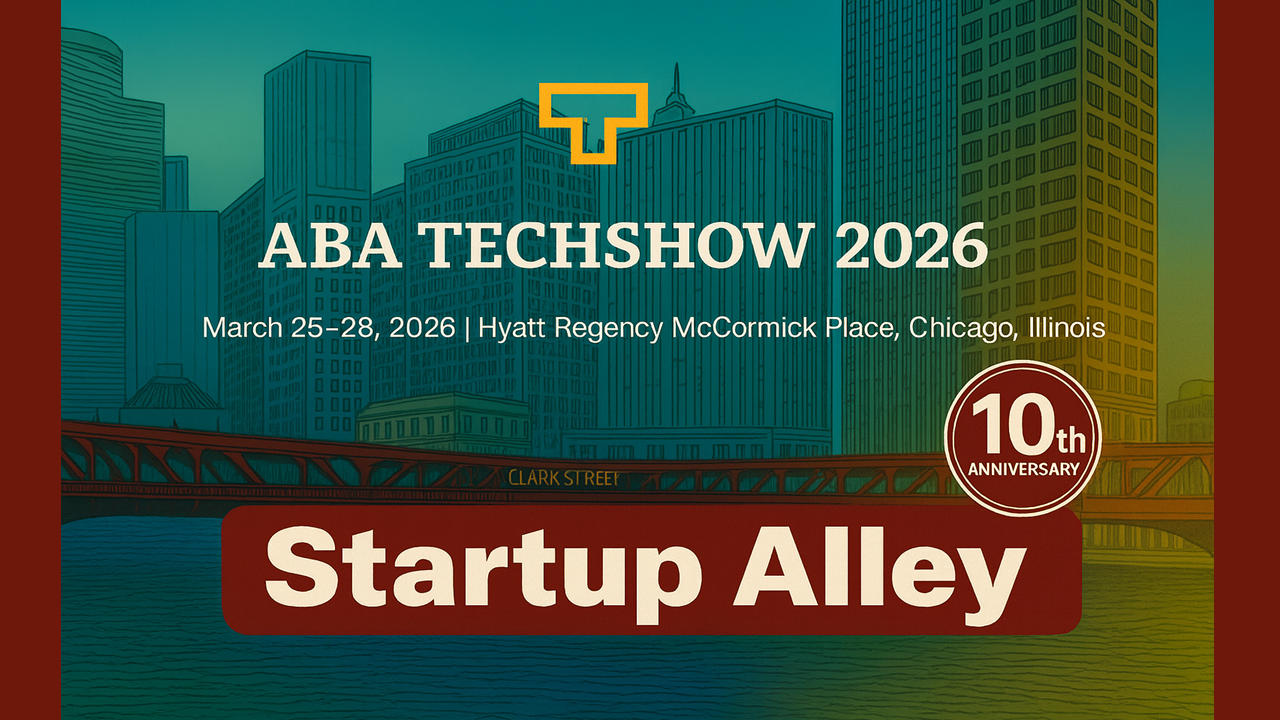On the surface, ILTACON 2025, the International Legal Technology Association’s largest annual legal technology event, had all the makings of a great conference. But despite the thought-provoking sessions and keynotes, networking opportunities and PR fanfare, I couldn’t shake the sense that we were in the midst of a seismic shift in legal tech, surrounded by the restless energy of a boomtown.
The conference was held last week, and its venue wasn’t the problem. It was quite lovely, all things considered. Out of all the Gaylord’s and their post-apocalyptic dome environs, the Maryland facility is the most navigable and conference-goer friendly. It doesn’t take long to get where you need to go, and things are often right where you’d expect them to be.
And it wasn’t the conference itself either. As far as legal tech conferences go, this one was well-planned, with many engaging activities, networking events and seminars. There were plenty of opportunities to network. The wine selection wasn’t bad—something that is particularly important to me—and attention to detail was evident. There were information booths, carefully placed drop boxes for the Klik SmartBadges post-conference, and ILTAcon representatives were conveniently located throughout the facility, ready to assist with directions and more.
The gold rush
It wasn’t ILTACON that bothered me; it was the heady, gold-rushed, “anything goes and whatever sticks works” environment that was unsettling. While this year’s conference was pirate-themed, it felt more like the Wild West to me.
This attitude permeated the conference, driven largely by the frenzied, frontier-style artificial intelligence revolution. The AI train is hurtling forward at lightning speed, destination unknown, and everyone is trying to cash in before it derails.
AI roadmaps and products shared mere months ago have already been abandoned. Companies announced new AI tool names, new development approaches, and new advancements, while acknowledging that AI deployment is an imperfect, moving target, because the foundational tools relied upon today may very well change tomorrow.
Meanwhile, legal AI startups are multiplying faster than anyone can track, which is just as well, since there’s little reason to try. Many will vanish overnight, either burning through their funding or getting swallowed up in the acquisition abyss.
Off the rails
Ultimately, however, my unease was driven by more than the free-wheeling abandon of the AI era. There was also a sense that the reins, both technological and professional, had been tossed aside altogether, a gleeful abandonment of restrictive expectations. It’s the Wild Wild West all over again, prior constraints be damned. The atmosphere carried a familiar bravado—a chest-thumping, disruption-at-all-costs energy that celebrated excess as much as innovation.
From the questionable choice to feature a scantily clad woman contortionist in an absurdly oversized champagne glass during a company’s after-hours party, to the casual conversational invocation of last year’s Legalweek sexual assault controversies as little more than a passing punchline, it felt like something had shifted. The industry’s bombast and showmanship were becoming impossible to ignore, at times overshadowing its substance.
The lay of the land
Even so, not everything was runaway trains and desperado tactics. Beneath the noise, the press briefings offered real insight into where vendors are placing their bets on this AI frontier. In the face of excessive bluster, some press briefings offered a balanced perspective, with vendors eager to prove they weren’t merely jumping on the gold rush bandwagon but instead were offering worthwhile advancements and updates to their customers.
Two themes emerged from my discussions. First, no matter who you spoke to, “agentic AI,” meaning AI that autonomously takes purposeful actions, was a buzzword that cropped up often, whether during press briefings or over drinks. Another key trend was the race to become the generative AI home base for legal professionals.
For example, LexisNexis staked its claim on its new personalized AI-guided legal research tool supported by agentic workflows, Protégé. This tool includes a feature allowing its customers to access consumer LLMs like GPT-5 and Claude inside the Lexis+ AI platform. LexisNexis’ approach was both unique and practical. Instead of pretending lawyers will give up OpenAI, they’ve built around it, betting that security and convenience will keep users squarely in their ecosystem.
Similarly, Thomson Reuters announced its latest and final version of Westlaw, Westlaw Advantage. It also announced the latest launch of its generative AI legal research platform, CoCounsel Legal, which features deep research and agentic-guided workflows. During a press briefing at ILTACON, Steve Hasker, Thomson Reuters president and CEO, explained why the company was investing so heavily in AI integration, emphasizing the significant impact generative and agentic AI will have on the practice of law: “We are at the start of the biggest disruption to the legal profession in its history.”
The home base platform trend was also evident in e-discovery platform announcements, with vendors continuing to expand functionality within their platforms beyond what was originally intended. This approach is largely driven by the datasets that generative and agentic AI tools can leverage.
To that end, Everlaw announced its Deep Dive tool, which allows users to query entire document databases and obtain targeted responses. The company also announced that it had obtained FedRAMP authorization for Everlaw AI Assistant, thus enabling governmental use of its software.
DISCO’s announcements also highlighted an AI-enabled expansion of its platform’s original use cases beyond traditional tasks such as e-discovery and document management. Recent features added to the platform included the launch of Auto Review in the UK and AI-powered document summarization and translation features.
NetDocuments also focused on how AI is reshaping the role of document management platforms in law firms. A key point that came out during the product briefing was the integration of AI-powered workflow automation into the software has resulted in a shift where DMS platforms can now serve as the home base for generative AI-powered document-related tasks in law firms.
Meanwhile, the generative AI legal platform Legora is focused on providing a system that enables legal professionals to accomplish an array of legal tasks, from legal research and complex legal workflows to document drafting and document analysis. Legora continues to focus on expanding its increasingly popular platform’s customer base beyond Europe and has been gaining significant ground in the U.S., particularly with larger law firms.
During other briefings, more narrowly focused AI functionality was highlighted, featuring tools that harnessed the power of generative and agentic AI by addressing very specific legal use cases. One example is Chronotracer, a legal AI platform that was launched publicly earlier this month and is designed to process and analyze large datasets in litigation cases. It handles a range of evidence types, from phone records, emails and social media posts, enabling the user to create a comprehensive chronology that can be easily filtered and analyzed.
Likewise, Descrybe.ai is another tool that relies on generative AI for a focused purpose, namely, advanced legal research. Released in 2023, it offers access to user-friendly legal research capabilities at an affordable price point. To further its footprint, the team is now exploring the potential of allowing other legal AI tools to leverage its extensive dataset, prospecting for new ways to expand its reach.
There’s no sheriff in town
While the nuts and bolts of the news coming out of ILTACON felt like business as usual, strip away the practical announcements and demos, and the bigger picture is harder to ignore: The gold rush is in full throttle, and the town feels lawless. There’s real promise in these tools, but also significant danger lurking in the unchecked bravado. Coming out of ILTACON, I can’t help but wonder—who’s the sheriff in this story, and what happens if no one rises to the occasion?
Nicole Black is a Rochester, New York-based attorney, author and journalist. She is the principal legal insight strategist at 8am, parent company of LawPay, MyCase, CasePeer and DocketWise. She is the nationally recognized author of Cloud Computing for Lawyers and is a co-author of Social Media for Lawyers: The Next Frontier, both published by the American Bar Association. She writes regular columns for ABAJournal.com and Above the Law, has authored hundreds of articles for other publications, and she regularly speaks at conferences regarding the intersection of law and emerging technologies. Follow her on LinkedIn, or she can be reached at [email protected].



























